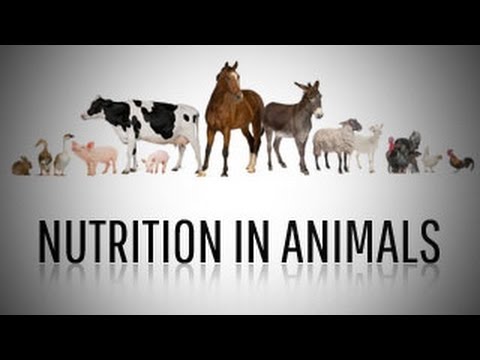Parenting | May 10, 2022
Overview of nutrition in mammals!

Food is a must for survival. Carbohydrates, proteins, lipids, vitamins, and minerals are the major nutritional components that must be included in our diet. These food components are known as nutrients, and they are essential for the growth of all living things. Nutrition is the process of a living organism utilizing food in order to obtain energy for their own growth and development. Ingestion, digestion, absorption, assimilation, and egestion are all processes that might be characterized as nutrition.
Food is required by all plants and animals in order for them to produce energy, which is required for their own growth. Plants can create their own food through a process called photosynthesis, but animals cannot make their own food.
Animals can draw their nutrition by directly eating the plants (herbivores), or indirectly by eating animals which have consumed plants (carnivores). Omnivores are creatures that have the ability to eat both vegetation and animals. Animals only consume ready-made complex organic matter derived from other microbes, and this technique of consuming ready-made complex organic matter is referred to as holozoic nutrition.
The nutrients make it possible for the living organism to build up their bodies, to grow, to repair the damaged parts of their bodies and supply the energy to hold out life processes essential for living. For growth and maintenance of the body, macro, and micro-nutrients both are essential. For example, if we talk aboutdogs, the nutrition they need to gain energy arecarbohydrates, proteins, and fats. Like fats, amino acids, proteins, minerals, and water should be included in Poultry nutrition for their growth and development. Nutrients like proteins, phosphorous and pro vitamin A are required for Bovine animals. Micro-nutrients like vitamin B-complex, vitamin c, Fat soluble vitamins like A, D, E and K are required in a mammal diet.
The mammalian digestive system starts from the mouth and ends at the anus, including oesophagus, stomach, small intestine and large intestine, salivary glands, liver, and pancreas. Here are different types of feeding methods like:
- Filter Feeding: Animals obtain nutrients from particles that are suspended in water. This type of feeding is used to take nutrients by fish.
- Deposit feeding: Animals obtain nutrients from particles that are suspended in the soil. Earthworms use this mode of ingestion, as they take nutrients by ingesting the soil particles.
- Fluid feeding: Animals obtains nutrients by consuming other organisms fluids. For example, honeybees.
- Bulk feeding: Animals obtain nutrients by eating the whole of an organism means complete organism. For example, python.
- Ram feeding and suction feeding: Animals ingesting the prey via the surrounding fluids. For example, bony fish use this mode, by ingesting aquatic predators.
There are five steps for the process of nutrition in animals:
- Ingestion
- Digestion
- Absorption
- Assimilation
- Egestion
Want access to expert academic guidance — for free? When you create your free Vnaya account, you will have an option to ask a Question, Book a Demo session, talk to our Academic Experts, and get Professional Parenting Support —all for Free! Our Academic Counselor will help you learn how to improve your academic performance by assessing your learning style and curating a personalized lesson plan for you!
Sign up for your Vnaya account today to get a boost on your academic quest.
















Post a Comment: